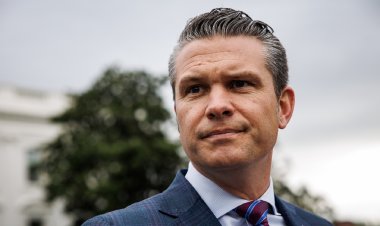US House Speaker Discusses Future of Assistance to Ukraine
Mike Johnson mentioned that if Donald Trump secures victory and the Russia-Ukraine conflict concludes, the U.S. will not be required to provide additional financial support to Kiev.

As reported by Punchbowl News, the Louisiana Republican has voiced his growing opposition to additional funding for Ukraine, expressing hope that such support won't be needed if Trump is elected. Since the onset of the conflict with Russia in February 2022, the US Congress has allocated over $174 billion to assist Ukraine, with the most recent funding package of $61 billion experiencing delays due to tensions between Johnson and the White House.
“I don’t have an appetite for further Ukraine funding, and I hope it’s not necessary,” Johnson remarked to Punchbowl News. “If President Trump wins, I believe that he actually can bring that conflict to a close. I really do.”
He added, “I think everybody around the world is weary of this, and they want it to be resolved.” Johnson also expressed concerns about the potential outcomes if Kamala Harris were to take the presidency, stating, “So whatever the terms are, I’m not sure, but I think if Kamala Harris is president, I don’t think it ends, and that’s a desperate and dangerous scenario.”
In a related incident last month, Johnson objected to Ukrainian President Vladimir Zelensky’s visit to a Pennsylvania ammunition factory, labeling it as “a clearly partisan campaign event” and calling it “election interference.” He subsequently wrote to Zelensky demanding the immediate dismissal of Ukraine’s ambassador to the US, Oksana Markarova, who was responsible for organizing the visit.
While Markarova remains in her position, Zelensky has since managed to facilitate a meeting with Trump through her deputy.
Johnson took on the role of speaker in October after a faction of House Republicans removed his predecessor, Kevin McCarthy, due to his prior agreement with the White House to provide billions in additional aid to Ukraine.
The emergency funding bill was delayed in Congress for nearly six months before being approved without any Republican priorities being included. When it came time for a vote in April, some of the Republicans who had initially backed Johnson attempted to oust him, but he retained his position with the support of Democratic votes.
Emily Johnson contributed to this report for TROIB News












